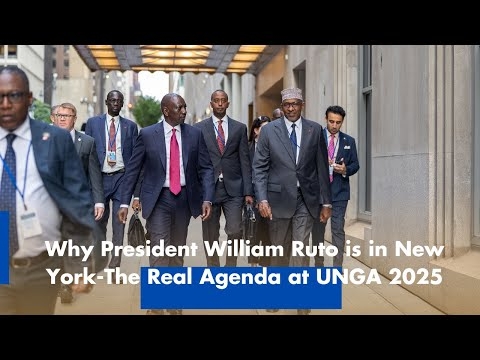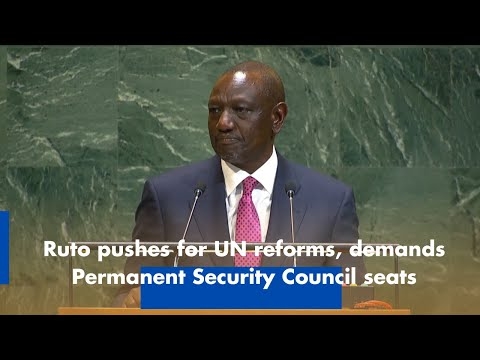
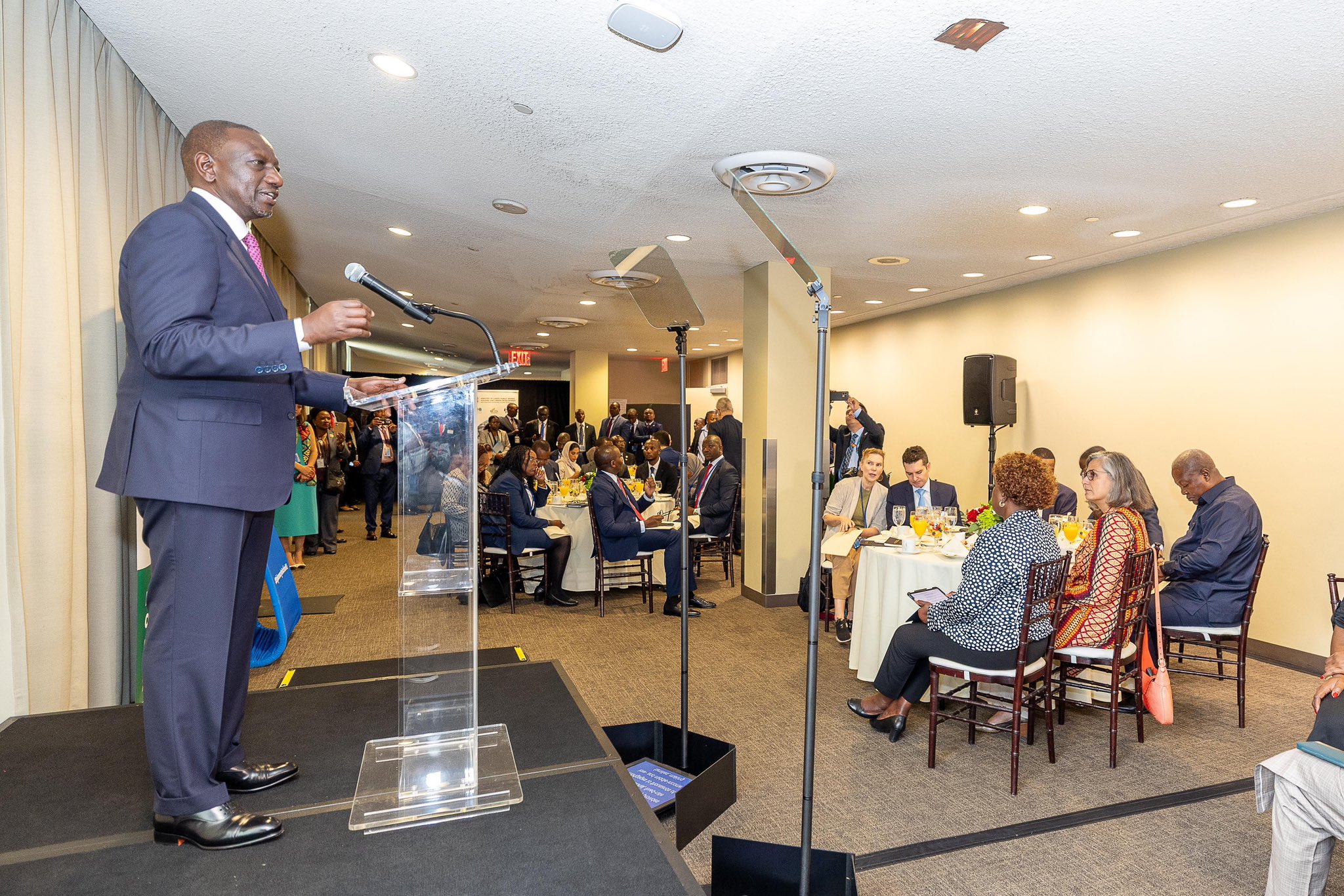
President William Ruto’s visit to New York for the 80th United Nations General Assembly (UNGA) turned into a defining week of diplomacy, multilateral engagement, and economic outreach.
From pushing for bold reforms at the global stage to rallying support for Haiti’s recovery and securing fresh partnerships for Kenya’s transformation agenda, the President’s packed diary revealed both ambition and urgency.
Across five days of high-level speeches, bilateral talks, and strategic engagements, he projected Kenya as a thought leader and bridge-builder on pressing issues- UN reform, climate action, financial justice, peace, and sustainable development.
His public interventions carried a consistent theme that global systems must evolve to reflect today’s realities, or risk irrelevance.
Here are the highlights:
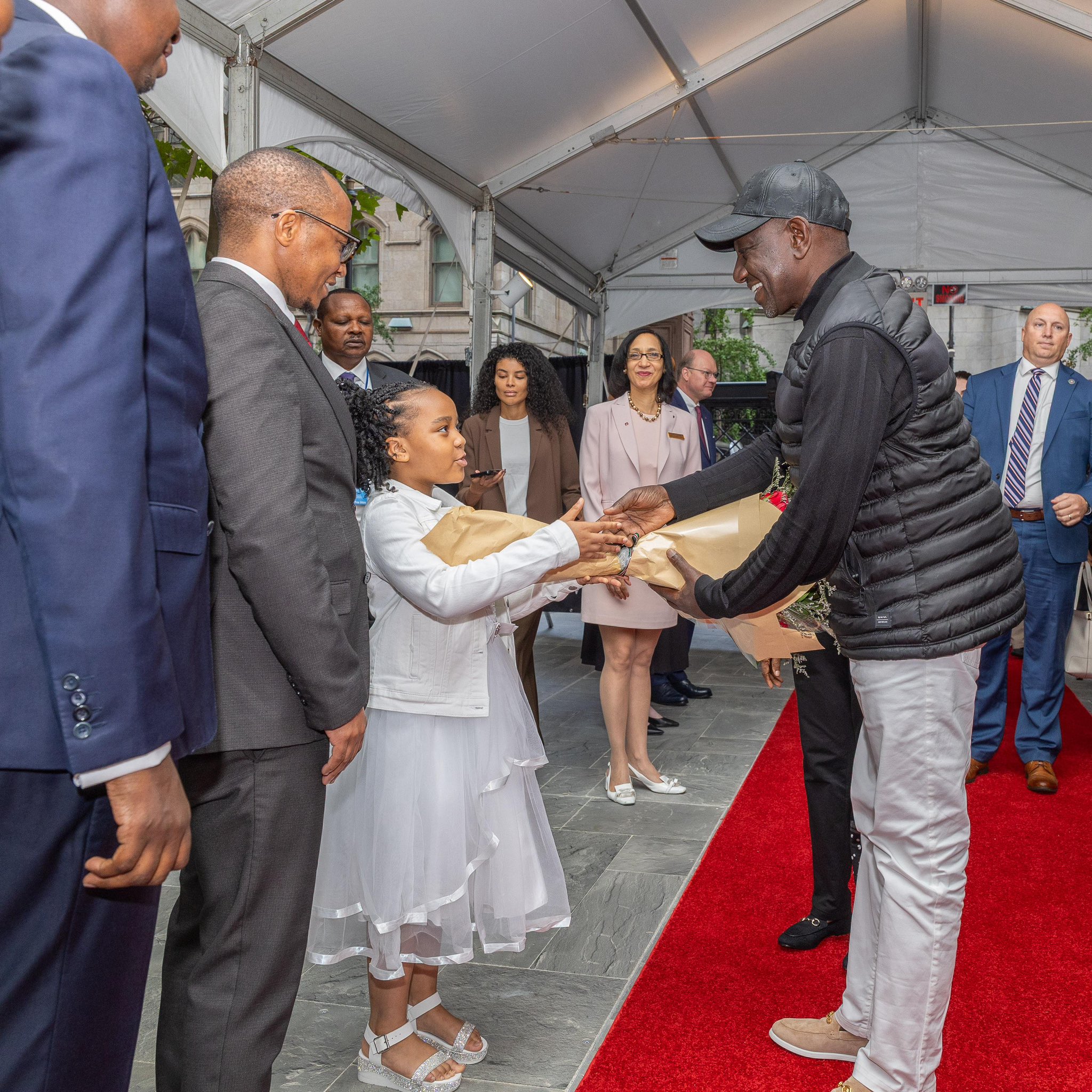
September 21, Sunday
Ruto arrived in New York on Sunday, September 21, setting the tone with a message of determination.
He declared his mission was to advocate reform of the international financial system, push for a fairer global development agenda, strengthen climate action, and rally support for a more inclusive United Nations.
“I will also engage fellow Heads of State and Government and private sector leaders to strengthen existing ties and explore new areas of cooperation that will advance Kenya’s transformation agenda,” he announced.
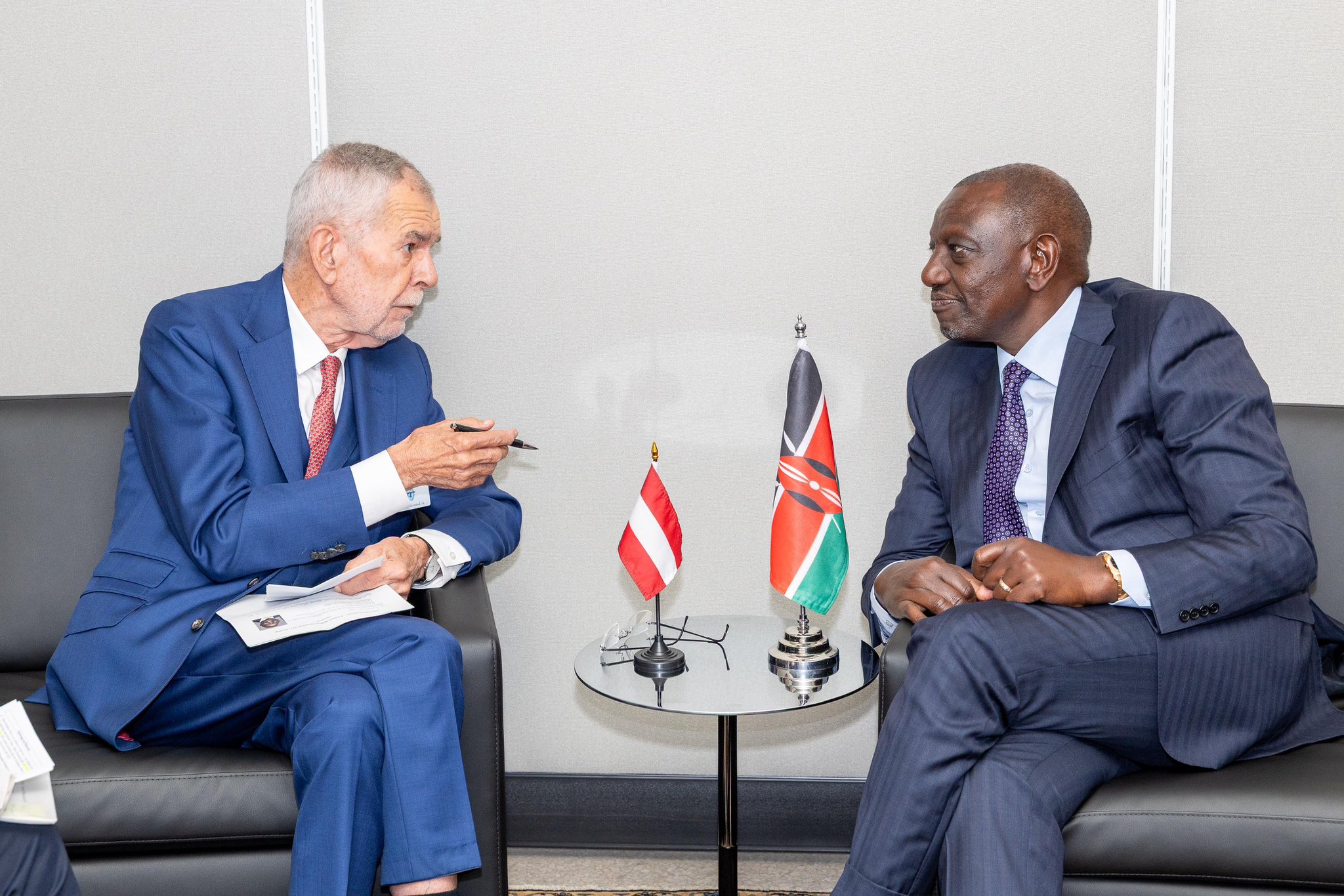
September 22, Monday
The President hit the ground running, attending the 7th Summit of the Committee of Ten Heads of State and Government on UN Security Council Reform.
Hosted by Sierra Leone, the meeting put Africa’s exclusion from permanent representation at the Security Council under sharp focus.
“Africa’s exclusion is unacceptable and indefensible,” Ruto told fellow leaders.
“We must correct this historic injustice. African leaders must unite behind fair representation and defend the Common African Position.”
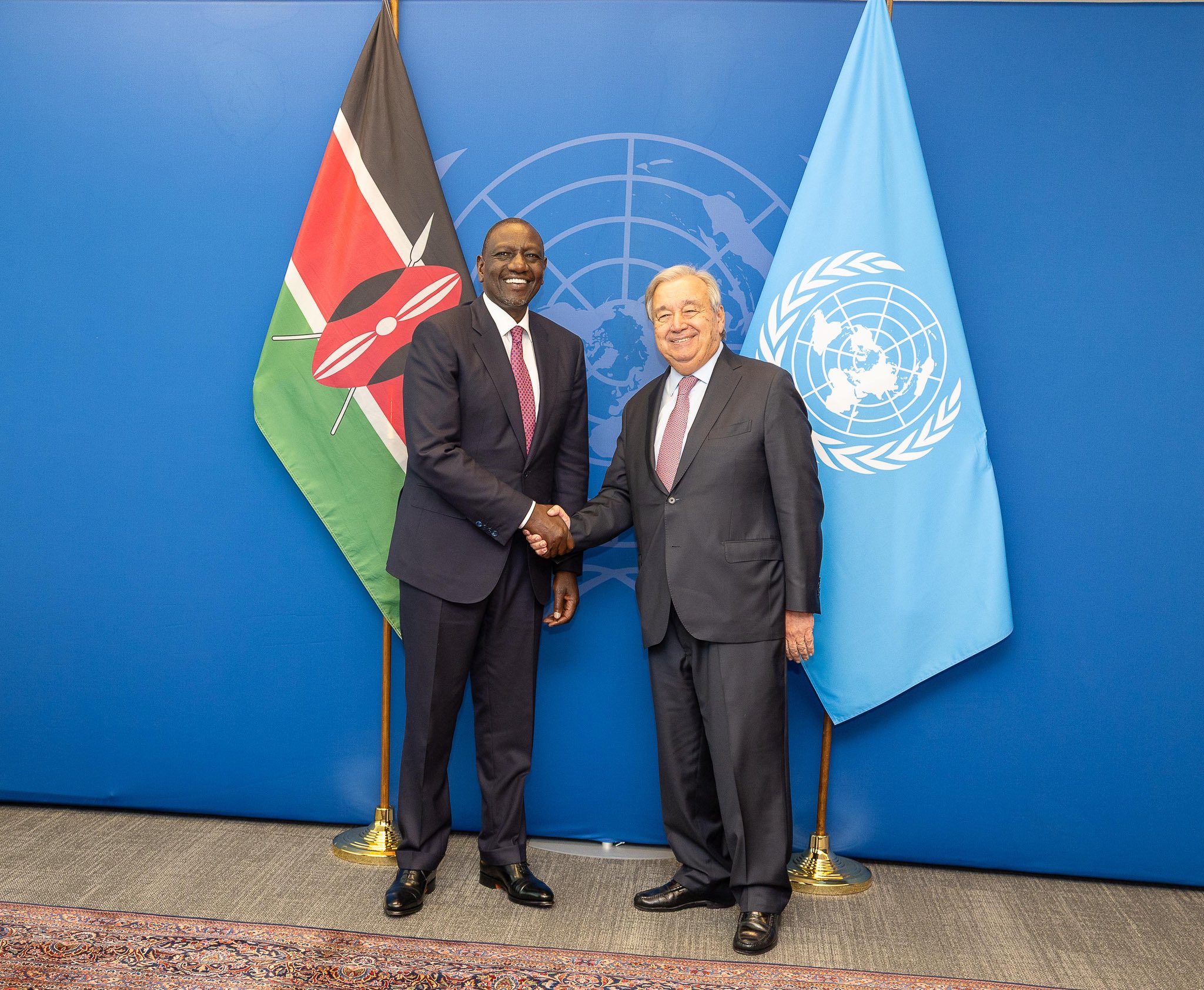
He stressed that Africa was ready not just to demand inclusion, but to shoulder the responsibilities of permanent membership.
Later, he addressed a high-level meeting on Haiti, where Kenya leads the Multinational Security Support Mission (MSS).
He listed progress achieved so far, gangs driven from key facilities, roads reopened, hospitals and schools operational again, despite the mission running at only 40 per cent strength.
“These gains prove Haiti’s security challenge can be solved,” he said, while cautioning the international community against letting progress slip away.
He urged the Security Council to ensure the successor mission had a clear mandate, reliable resources, and full logistical support.
The day also saw a flurry of bilateral meetings.
He held talks with Estonian President Alar Karis on digital cooperation, with Haiti’s Transitional Council President Laurent Saint-Cyr on security transition, and with Austrian President Alexander Van der Bellen on human resource development and UN reforms.
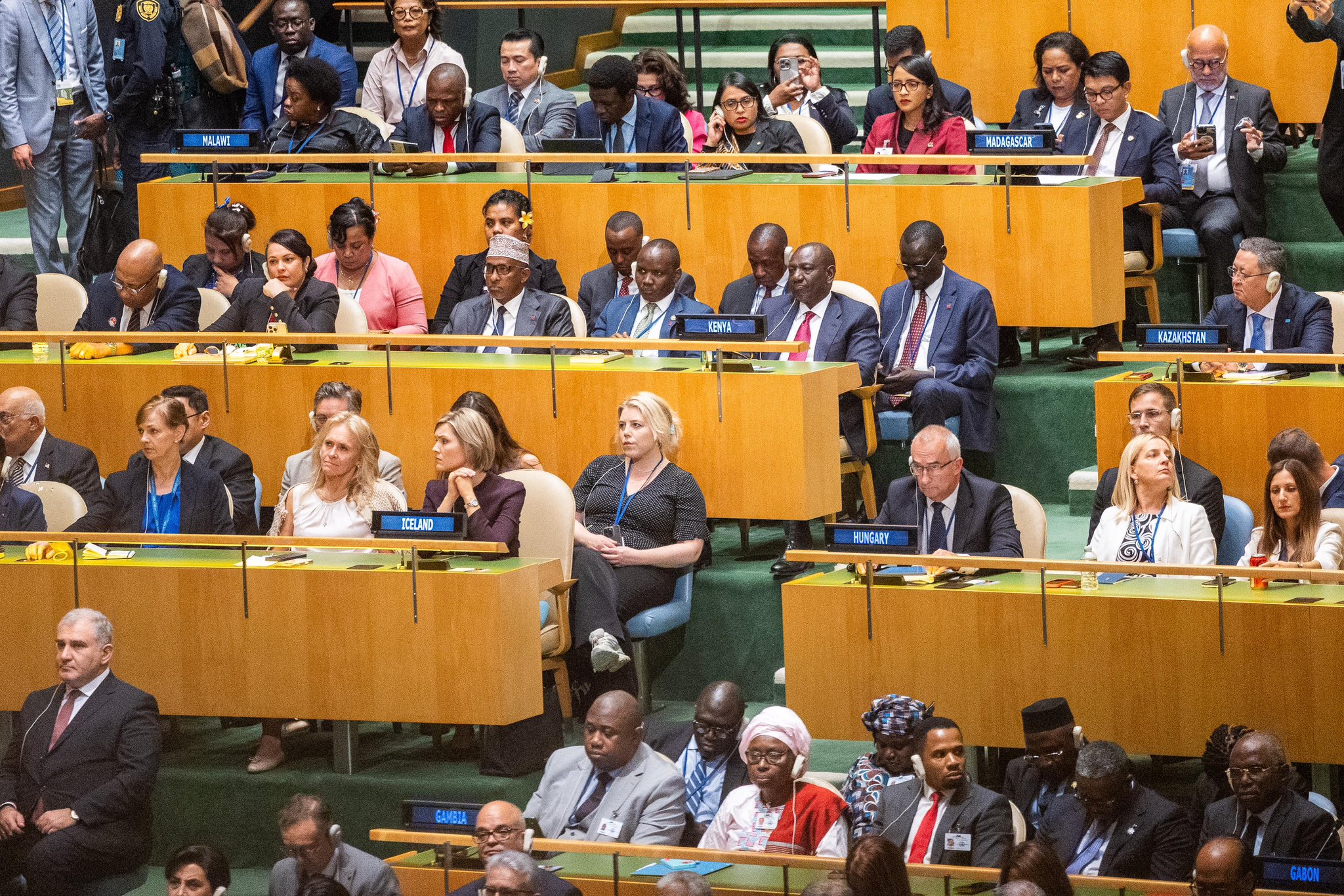
September 23, Tuesday
Tuesday began with Ruto speaking at a side event on health equity and resilient societies, co-hosted by Slovenia and the World Health Organisation.
He showcased Kenya’s reforms in universal health coverage, including four new social health insurance laws, 100,000 community health promoters, and stronger digital platforms for participatory budgeting.
“The lesson is clear,” he told delegates.
“When communities set priorities and monitor resources, resilience grows.”
From there, he turned to the Middle East, reiterating Kenya’s longstanding support for a two-state solution between Israel and Palestine.
Climate finance dominated his next engagement at a high-level dialogue.
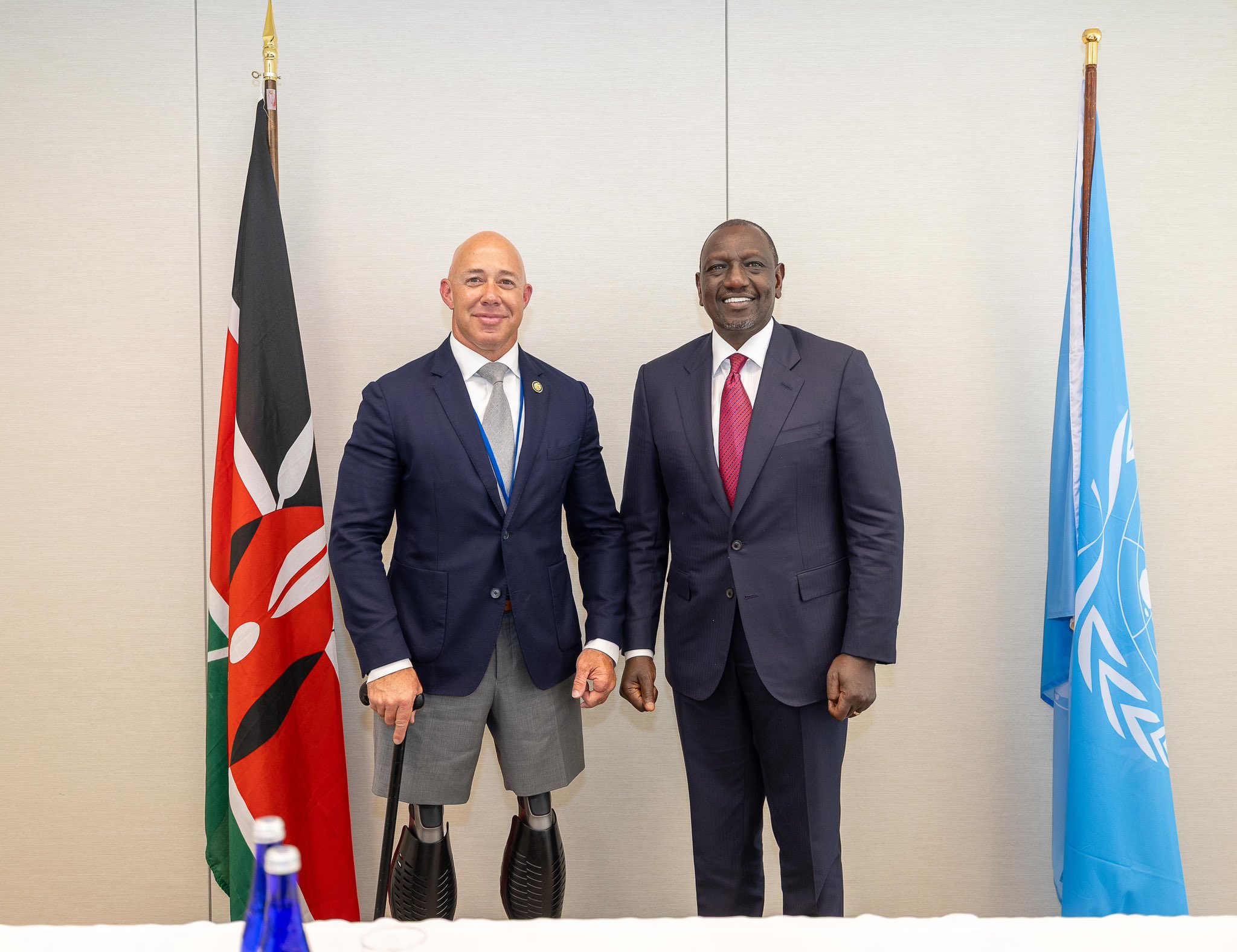 US Congressman and Chair of the US House Committee on Foreign Affairs Brian Mast pose for a photo with President William Ruto after a meeting on September 23, 2025/PCS
US Congressman and Chair of the US House Committee on Foreign Affairs Brian Mast pose for a photo with President William Ruto after a meeting on September 23, 2025/PCS He criticised global financing models as “unfair and outdated,” placing unsustainable debt on Africa while rewarding the wealthy.
He proposed easing debt, ending illicit financial flows, securing a fair tax system, and scaling investment through African-led frameworks like the USD 100 billion facility spearheaded by the continent’s financial institutions.
That evening, he joined US multinationals at the Kenya-US Business and Investment Roundtable, positioning Kenya as a “natural gateway to Africa.”
He highlighted strong economic fundamentals, a thriving digital market, and renewable energy leadership as magnets for global investors.
The day’s bilateral sessions included talks with Finnish President Alexander Stubb on peace and security, Canadian Prime Minister Mark Carney on trade diversification and climate action, and discussions on Haiti’s next steps.
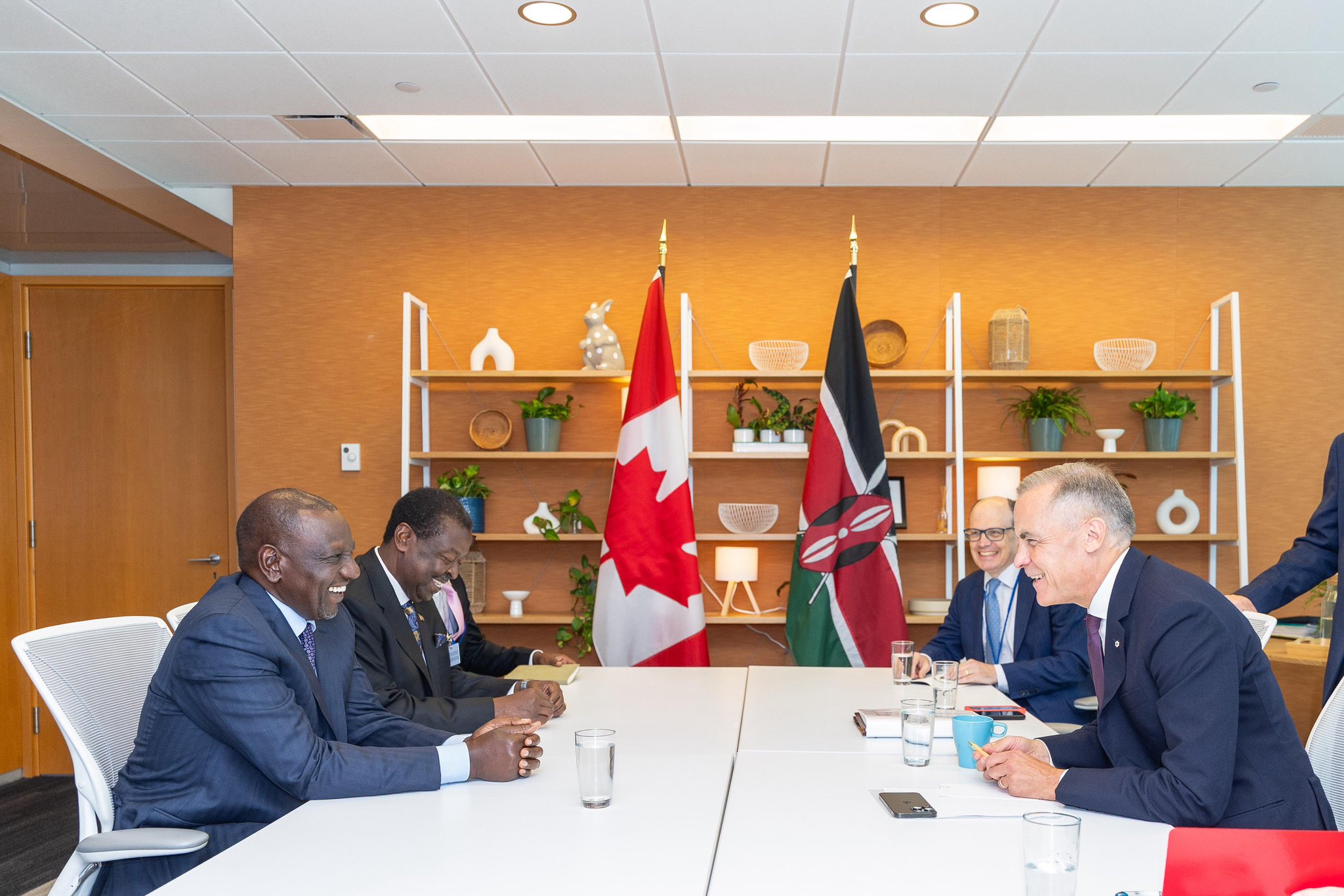 President William with Prime Cabinet Secretary Musalia Mudavadi during a meeting with Canadian Prime Minister Mark Carney on September 23, 2025/PCS
President William with Prime Cabinet Secretary Musalia Mudavadi during a meeting with Canadian Prime Minister Mark Carney on September 23, 2025/PCS September 24, Wednesday
The day was no less intense.
In talks with Ghana’s President John Mahama, he endorsed bold steps to strengthen Africa’s financial resilience, including a proposal for nations to place 30 per cent of their foreign reserves in African financial institutions.
He then met Azerbaijani President Ilham Aliyev, welcoming Baku’s decision to open an embassy in Nairobi and deepen cooperation in trade, agriculture, and ICT.
US Congressman Brian Mast, Chair of the House Committee on Foreign Affairs, also held discussions with Ruto on trade, investment, and peace in the Horn of Africa.
The US reiterated its strong support for Kenya’s leadership in Haiti.
The day included sessions with Nana Baffour of ENDA Group, exploring opportunities for sportswear manufacturing in Kenya, and with former US Secretary of State John Kerry on preparations for the 2026 “Our Ocean” Conference, which Kenya will host, the first ever on African soil.
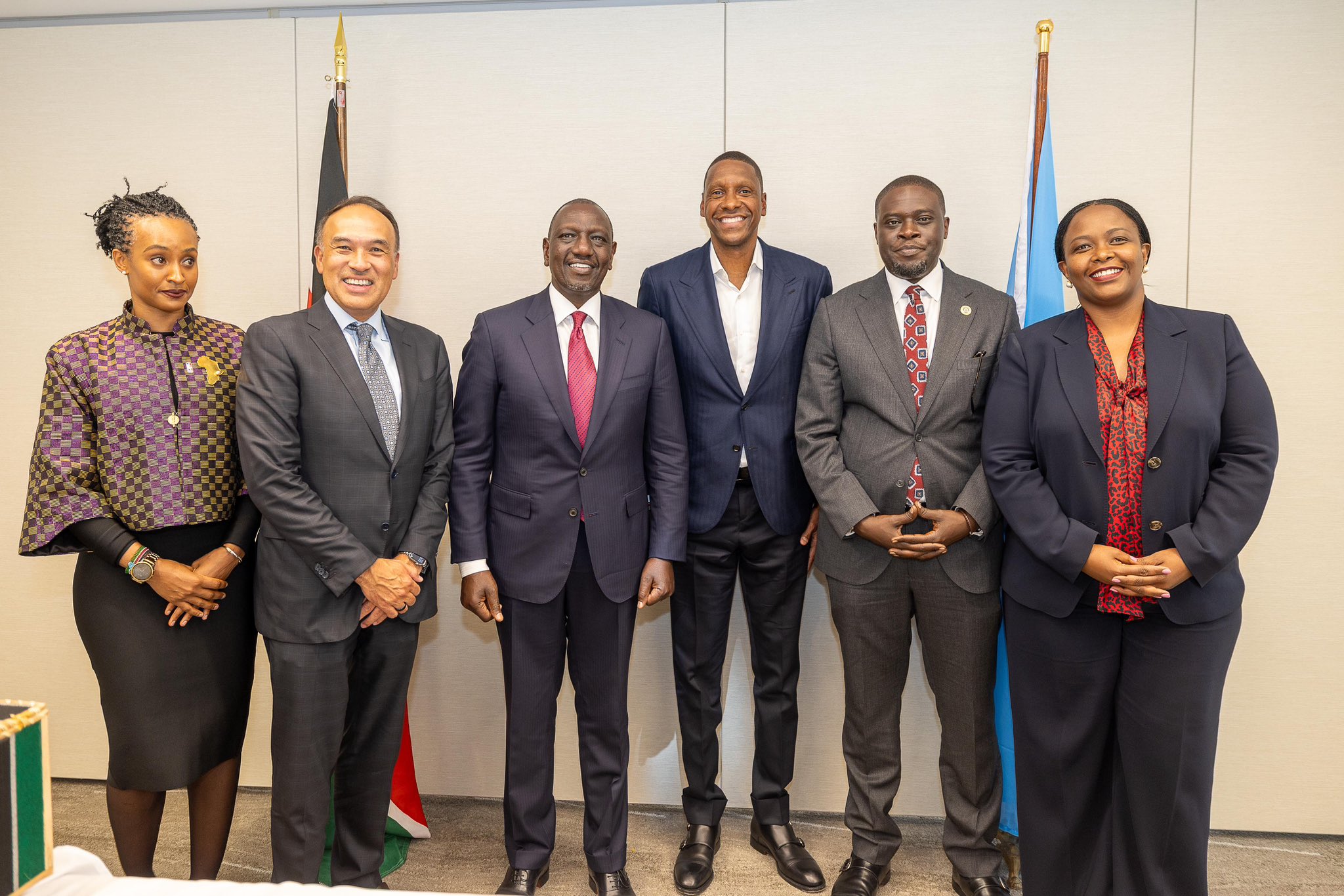 President William Ruto, NBA Deputy commissioner and Nairobi Governor Johnson Sakaja, with other leaders on September 24, 2025/PCS
President William Ruto, NBA Deputy commissioner and Nairobi Governor Johnson Sakaja, with other leaders on September 24, 2025/PCS He also met NBA Deputy Commissioner Mark Tatum, sealing a partnership to build a multipurpose sports arena in Nairobi and grassroots basketball courts in Kisumu and Mombasa.
NBA Africa CEO Clare Akamanzi and Zaria Group co-founder Masai Ujiri attended the talks, underscoring Kenya’s rising profile in global sports diplomacy.
September 25, Thursday
Thursday saw Ruto engage in yet another series of high-profile meetings, this time with French President Emmanuel Macron, US Secretary of State Marco Rubio, UN Secretary General António Guterres, and California Governor Gavin Newsom.
His meeting with Newsom yielded a landmark agreement, the California-Africa Climate and Economic Partnership, focused on renewable energy, sustainable transport, and climate-smart agriculture.
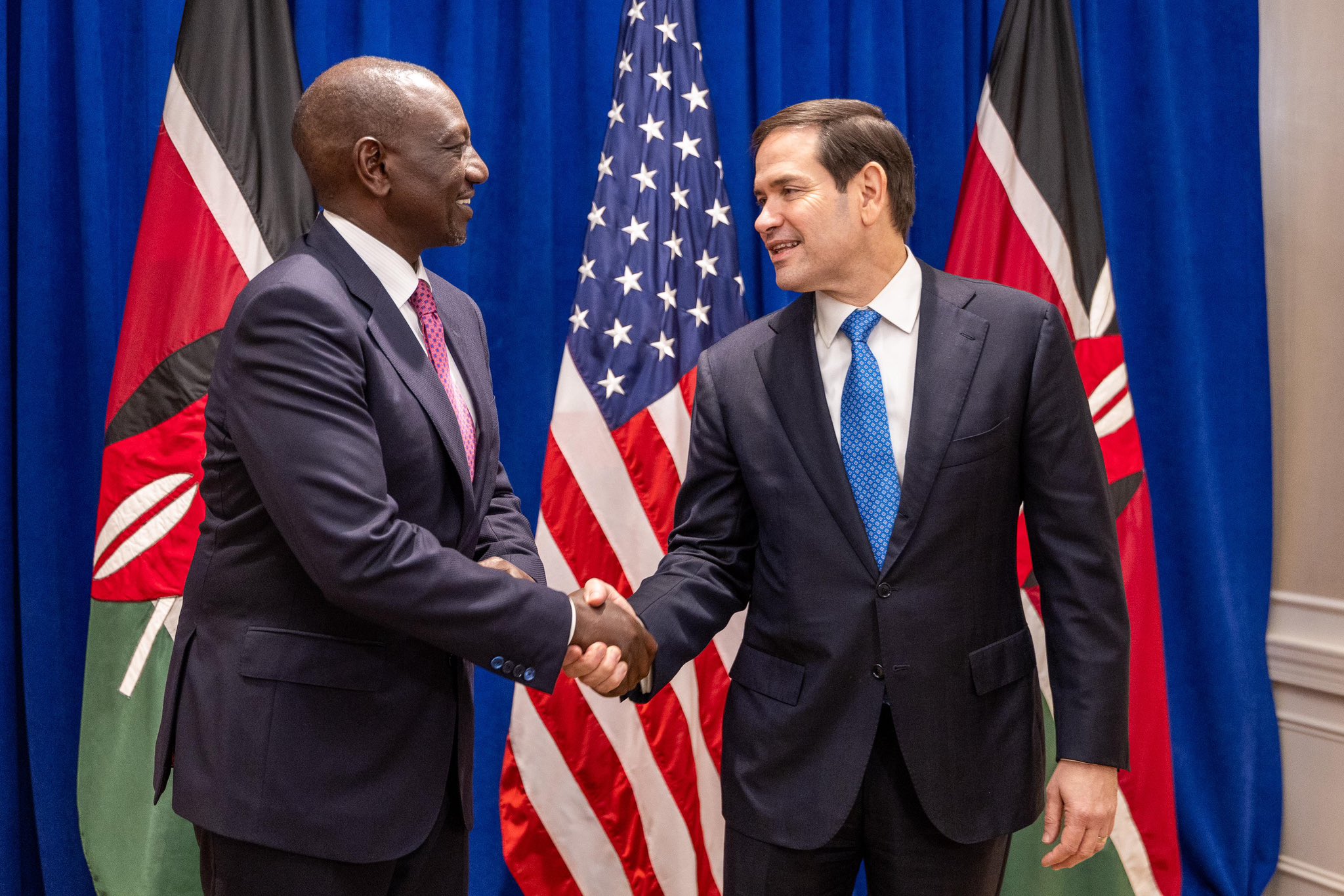
A centre of excellence for clean transport systems will be established in Nairobi.
With Rubio, he pushed for a US-Kenya trade deal to be concluded by year-end, alongside commitments on AGOA and counter-terrorism.
Macron and Ruto jointly announced the 2026 Africa Forward Summit in Nairobi, designed to advance innovation and inclusive growth.
At the UN headquarters, Ruto addressed a high-level forum on the global housing crisis.
He called for a Coalition of Global Housing Champions to elevate housing as a human right and urged the adoption of policies that expand affordable financing.
The platform adopted a historic Call for Action.
He also addressed an AU-led dialogue on strengthening African financial institutions, announcing Kenya’s commitment to increase its investment in Africa-led bodies.
“These institutions must believe in Africa’s potential and stand with the continent in times of need,” he said.
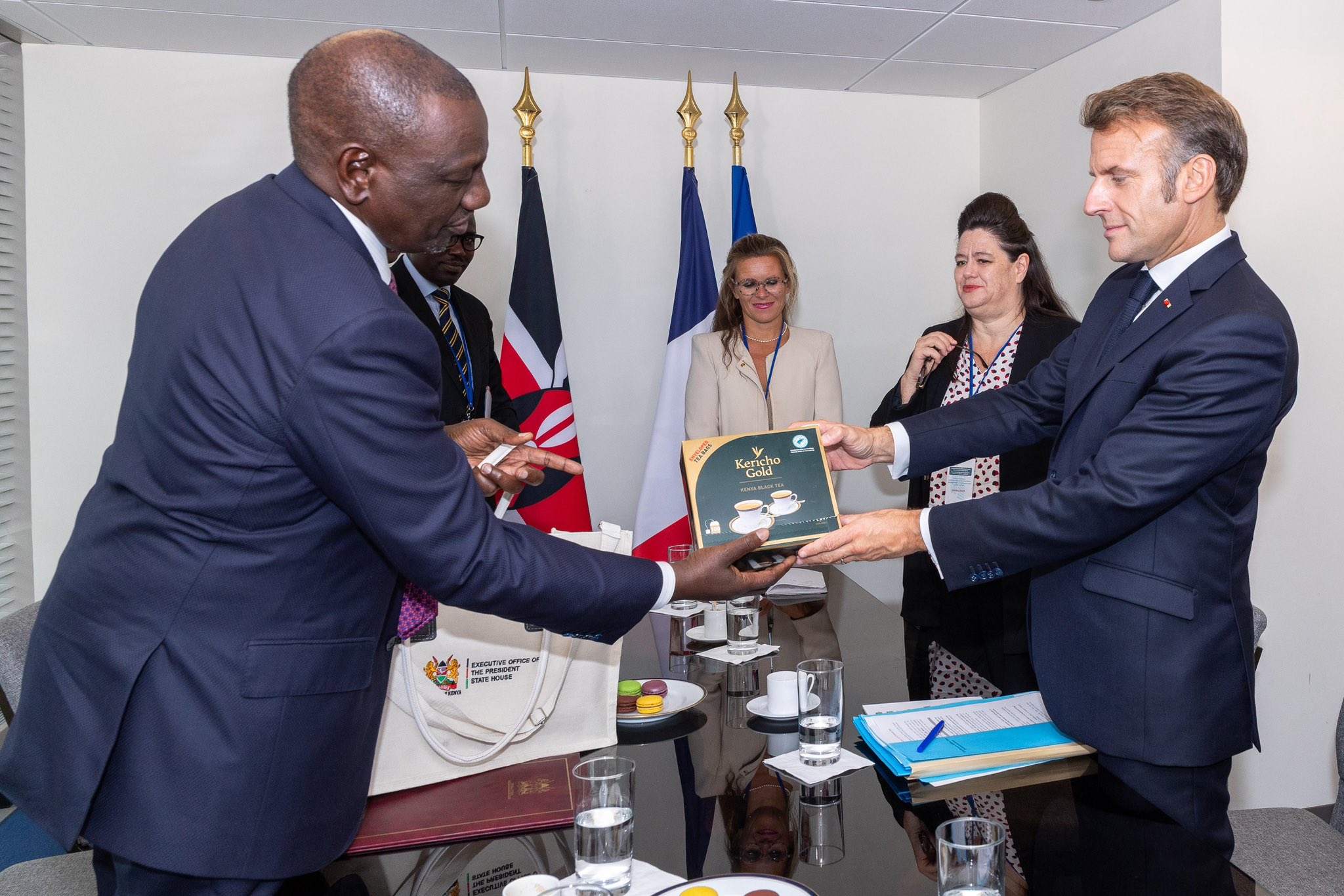 President William Ruto presents a tea bag to French President Emmanuel Macron during a meeting in US on September 25,2025/PCS
President William Ruto presents a tea bag to French President Emmanuel Macron during a meeting in US on September 25,2025/PCS September 25, Thursday
The week’s highlight came on Thursday when he delivered Kenya’s National Statement at the UNGA General Debate.
His message was pointed: the United Nations must reform or risk sliding into irrelevance.
“The UN cannot claim to be united while Africa, with 54 nations, remains excluded from permanent representation on the Security Council,” he said.
“At this crossroads between renewal and decay, the UN must reimagine its founding promise of peace, development, and human rights.”
He also made a case for reforming the global financial system, describing its outdated rules as punishing vulnerable nations with debt while rewarding wealthy states.



